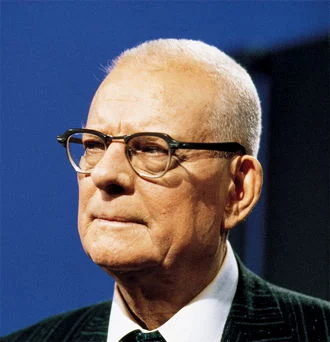Continuous Improvement
Global business is becoming increasingly volatile and competitive. These massive changes are due to socio-economic issues, changing demographic needs, and the ever-quickening advancement of technology. In this chaotic and extremely competitive environment, leaders need to focus on continuous improvement throughout the entire organization.
Leaders need to ensure the organization is positioned for long-term success. Dr. W. Edwards Deming, primarily known as the God of Quality and the usage of statistical control techniques, focused on areas where management needs apply energy; understanding of statistical control techniques, the realization of everything being a process, and the importance on focusing on people, not technology, costs, or other variables. Deming felt that true organizational change had to come from the top-down.
Key Areas of Focus
Through his many years of teaching and consulting, Deming developed his System of Profound Knowledge. The system was composed of four key areas to direct management in the process of driving improvement and change throughout an organization. Deming felt that along with the use of statistical control techniques, management need to focus on the following four items.
Appreciation of a system: understand the entire process, include customers, suppliers, etc., and understand how all interact with one another; think of a system as a single entity with all elements working together; the system needs to seek a steady state of operation which determines overall output
Knowledge of variation: understand statistical sampling in measurements; understand the difference between common and special causes of variation; constantly seek a steady state with minimal variation
Theory of knowledge: the concepts explaining knowledge and the limits of what can be known; knowledge must follow theory
Knowledge of psychology: concepts of human nature.
These four points interact with one another. You cannot use one and not the other. Applying these four items focuses on managers to see everything as a process, everything is within a system, and all things are accomplished by people. Management needs to understand that people get things done. In addition, all people are different so a manager must be aware of the differences and ensure the overall system is developed so all individuals can succeed.
The 14 Points
In addition to these four points, Deming also developed his 14 Points for Management. These points were presented in his book Out of the Crisis. These 14 points are recognized as the foundation of the total quality management (TQM) movement. These points should be applied in conjunction with the System of Profound Knowledge four key points. The System of Profound Knowledge is the basis for application of Deming's famous 14 Points for Management, described below.
Create constancy of purpose for improving products and services.
Adopt the new philosophy.
Cease dependence on inspection to achieve quality.
End the practice of awarding business on price alone; instead, minimize total cost by working with a single supplier.
Improve constantly and forever every process for planning, production and service.
Institute training on the job.
Adopt and institute leadership.
Drive out fear.
Break down barriers between staff areas.
Eliminate slogans, exhortations and targets for the workforce.
Eliminate numerical quotas for the workforce and numerical goals for management.
Remove barriers that rob people of pride of workmanship, and eliminate the annual rating or merit system.
Institute a vigorous program of education and self-improvement for everyone.
Put everybody in the company to work accomplishing the transformation.
For a well-run system, management must understand and support the use of statistical controls to eliminate variation. These points can be used in all areas of the organization; production, engineering, marketing, customer researcher, etc. This mindset and approach to business are opposite of the way most organizations operate.
Embrace Change
Too often leaders will not break with tradition nor upset the status quo. For true change and success, leaders need to embrace change, creativity, and innovation to develop competitive advantages. Doing what you have always done is not sufficient.
The need for a forward-thinking leader with the courage to break from the status quo is required. Ongoing support, training, and the understanding of the different components to eliminate variability will result in a stronger, well-run, people-focused organization.
Ford Taurus
Deming’s theories and teachings were one of the main reasons for Japan’s post-WWII success. In addition, Deming helped turn around Ford Motor Co. after the era of cost reductions from Robert McNamara and his “whiz kids”. Deming’s teachings resulted in the all-new 1986 Taurus that was the first product that used customer research before product development started. The success of the Taurus also demonstrated Ford’s commitment to quality.
Conclusion
I highly recommend reading Deming’s books and his various papers. Don’t be intimidated by the focus on statistics. Developing an understanding of the importance of measurements and controlling variability is critical for continuous improvement. Management must understand that everything is a process, and must be viewed as a system of inter-related parts. The more you think of everything as a system, change can be fun and engaging. Employee morale will improve, quality will increase, costs will decrease, and overall operational tempo will be much higher. As a combination, these are difficult for competitors to replicate.
References
https://en.wikipedia.org/wiki/W._Edwards_Deming
The New Economics for Industry, Government, Education by W. Edwards Deming
Out of the Crisis by W. Edwards Deming
The Essential Deming by Dr. Joyce Orsini
Drastic Changes for Western Management by W. Edwards Deming
Management’s Responsibility for the Use of Statistical Techniques in Industry by W. Edwards Deming
What Happened in Japan? By W. Edwards Deming
Report to Management by W. Edwards Deming
On the Use of Theory by W. Edwards Deming







